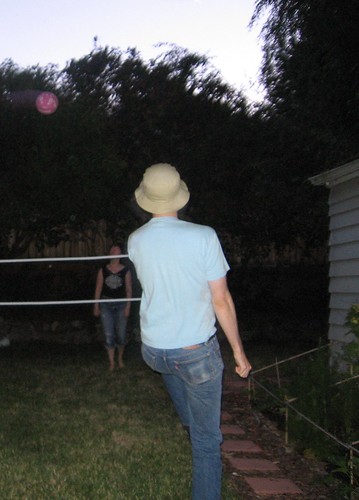
“…I believe that you are sincere and good at heart. If you do not attain happiness, always remember that you are on the right road, and try not to leave it. Above all, avoid falsehood, every kind of falsehood, especially falseness to yourself. Watch over your own deceitfulness and look into it every hour, every minute. Avoid being scornful, both to others and to yourself. What seems to you bad within you will grow purer from the very fact of your observing it in yourself. Avoid fear, too, though fear is only the consequence of every sort of falsehood. Never be frightened at your own faint-heartedness in attaining love. Don’t be frightened overmuch even at your evil actions. I am sorry I can say nothing more consoling to you, for love in action is a harsh and dreadful thing compared with love in dreams. Love in dreams is greedy for immediate action, rapidly performed and in the sight of all. Men will even give their lives if only the ordeal does not last long but is soon over, with all looking on and applauding as though on the stage. But active love is labour and fortitude…”
Fyodor Dostoevsky, “The Brothers Karamazov” (which I still need to finish after a long hiatus)
Thus begins Hal Hartley’s short yet powerful 1991 film Surviving Desire, which I just re-watched. One of Hartley’s great strengths is unconventional screenwriting. Dialogue which initially seems like nothing more than pretentious literary references and psychobabble from the mouths of bored, disaffected slackers, bohemians and grad students slowly but surely gets under one’s skin and wields significant emotional power.
In addition to utilizing characters as vessels for interesting passages from classical literature, as with the Dostoevsky quote above, Hartley’s characters engage in circular, repetitive exchanges, or simply repeat fragments of dialogue a number of times, giving the viewer license to interpret its meaning on multiple levels. For instance, a couple of times in the film, Sophie, a bookstore clerk, stands in the middle of the store, surrounded by customers walking by and ignoring her repeated, timid attempts at service: “Can I help someone? Does anyone need any assistance? Does anyone need any help?” Like the conversations on continuous loop, her attempts to reach out, consistently rebuffed, speak to a larger truth, namely how difficult it is to connect with, and truly know, other people.
Hartley returns to the themes of loneliness and isolation again and again in his films (see also Trust and Simple Men); yet one is left with an odd sense of hope at the end of each. His characters, despite their preternatural awareness of their own short-comings and the absurdity of life, continue striving to connect with others, unfrightened at their own faint-heartedness in attaining love. Ultimately, Hartley is a humanist, and he clearly cares for his neurotic characters, who survive desire and thus give us hope as we bumble through our own lives and relationships in search of human connections and understanding.
Fyodor Dostoevsky, “The Brothers Karamazov” (which I still need to finish after a long hiatus)
Thus begins Hal Hartley’s short yet powerful 1991 film Surviving Desire, which I just re-watched. One of Hartley’s great strengths is unconventional screenwriting. Dialogue which initially seems like nothing more than pretentious literary references and psychobabble from the mouths of bored, disaffected slackers, bohemians and grad students slowly but surely gets under one’s skin and wields significant emotional power.
In addition to utilizing characters as vessels for interesting passages from classical literature, as with the Dostoevsky quote above, Hartley’s characters engage in circular, repetitive exchanges, or simply repeat fragments of dialogue a number of times, giving the viewer license to interpret its meaning on multiple levels. For instance, a couple of times in the film, Sophie, a bookstore clerk, stands in the middle of the store, surrounded by customers walking by and ignoring her repeated, timid attempts at service: “Can I help someone? Does anyone need any assistance? Does anyone need any help?” Like the conversations on continuous loop, her attempts to reach out, consistently rebuffed, speak to a larger truth, namely how difficult it is to connect with, and truly know, other people.
Hartley returns to the themes of loneliness and isolation again and again in his films (see also Trust and Simple Men); yet one is left with an odd sense of hope at the end of each. His characters, despite their preternatural awareness of their own short-comings and the absurdity of life, continue striving to connect with others, unfrightened at their own faint-heartedness in attaining love. Ultimately, Hartley is a humanist, and he clearly cares for his neurotic characters, who survive desire and thus give us hope as we bumble through our own lives and relationships in search of human connections and understanding.

No comments:
Post a Comment